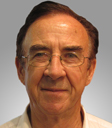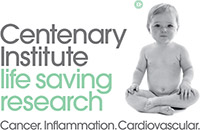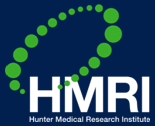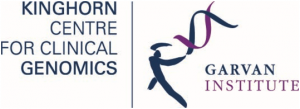| Time |
Agenda |
|
|
TARGETED ANTI-CANCER THERAPY & DRUG DELIVERY (II)
|
|
|
Drug delivery remains a huge challenge in the management of cancer as the delivery strategies for cancer vary according to its types and location. As conventional anti-cancer drugs being inherently toxic to all cells, newer approaches to cancer treatment are urgently needed to minimize harm to non-cancerous cells whilst enhancing the effect of the drugs administrated to the tumor itself.
Day two of the congress will feature contemporary approaches in targeted anti-cancer therapies augmented by technologies such as nanotechnology and soft robotics. Also, the subsequent sessions will highlight novel development in the various types of targeted therapies such as signal transduction therapies, angiogenesis, apoptosis and hormone therapies.
Through these presentations, delegates will be able to examine and evaluate the effectiveness of a variety of targeted therapies, overcome the various drugs side effects as well as co-create solutions to lower recurrence rate while increasing remission and survival rate of cancer patients. |
|
| 09:00 – 09:05 |
Congress Introduction and Day 2 Highlights by Chairperson |
|
| 09:05 – 09:35 |
Nanotheranostics for Cancer Management
|
|
|
- The advantages and limitations of nanotheranostics in cancer management
- Understand how the dual functioning of nanomaterials as an efficient diagnostic and therapeutic agent can help in the development of personalized and highly efficacious oncology nanomedicines with minimal or toxicity
- Case Study: Explore the potential of nanotheranostics in current prostate cancer treatments
|
|
 |
Speaker: Dr Prashant Sawant, Chief Scientist, Intraceuticals
Dr. Prashant D. Sawant, PhD., MBA, is a Chief Scientist at Intraceuticals Pty Ltd, Melbourne, Australia. Some of his research interests include nanoscience and their biomedical applications such as vaccine delivery, ophthalmology, etc.; dermatology, prostate cancer, genechips, nutrition based therapies, and innovation management. He has worked for academic and multinational companies in four countries after his Ph.D. and travelled worldwide in the past 23 years.
Dr. Sawant has developed various types of nanoparticles and studied their biomedical applications including lung imaging during his Ph.D. (1996) and did six years of post-doctoral research in nanoscience, biophysics and biomedical engineering from Universities in Israel, Singapore and Australia. He has developed and taught nanoscience, biophysics and biomedical technologies courses and mentored research students and scientists at Universities in Australia and Singapore.
Dr. Sawant’s recent work includes nanotheranostics and their applications for cancer management. To date, Dr. Sawant has authored 17 patent applications, three book chapters, four review articles and 31 research articles in reputed scientific journals, and five peer-reviewed conference articles. Additionally, he has received grants worth +$2 Mil in India, Israel, Singapore and Australia for research projects and infrastructure development. He was also involved in the product development for Stiefel, GSK, Pfizer, Unilever, and ICI, and developed more than 100 products worth $200Mil. Finally, Dr. Sawant has been awarded by his employers for scientific and business innovations, leadership and for problem solving.
|
 |
| 09:35 – 10:00 |
Breakthrough in using Soft Robotics Devices for Drug Delivery |
|
|
- Explore the potential for robotic drug delivery system in cancer care
- Address the barriers in carrying out targeted drug delivery with soft robotics
|
|
|
|
|
| 10:00 – 10:30 |
Exploring the Minimally Invasive Option for Cancer Treatment – Nanoknife, the Irreversible Electroporation |
|
|
- Review the current development of Nanoknife: the targeted, non-thermal, focal ablation therapy used for inoperable tumors
- Case Study: Findings derived from Phase I Clinical Trials with Nanoknife in Prostate Cancer, Safety study in Liver Cancer, Renal and Lung Cancer and clinical experience and review of recent literature in Pancreatic Cancer
- What is the future of Nanoknife: wider application in other types of cancer?
- Explore the possibility of combination therapies in cancer management: Nanoknife + immunotherapy + chemotherapy + surgical therapy + radiotherapy
|
|
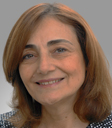 |
Speaker: Dr Helen Kavnoudias, Head of the Radiology Research Unit, The Alfred Hospital
Dr Helen Kavnoudias has headed the Radiology Research Unit at the Alfred Hospital since 2002 and has contributed to numerous internal and commercially sponsored clinical trials. Her work has covered a broad range of diseases including vascular disease, uterine fibroids and focal tumour ablation with irreversible electroporation (IRE). She was an author on the first human study of irreversible electroporation for the treatment of focal tumours in the liver, kidney and lung. She currently has an NHMRC grant for a Phase 1 trial of IRE for prostate cancer. She began her medical research career in cellular biology investigating differentiation induction of myeloid leukaemias in murine models at the University of St Andrew in Scotland followed by work on the cellular proliferation of megakaryocytes at the University of Melbourne.
|
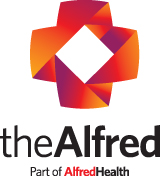 |
| 10:30 – 11:00 |
Morning Refreshments & Networking |
|
| 11:00 – 11:20 |
Targeting Fibroblast Growth Factor Signalling Pathway in Hepatocellular Carcinoma (HCC) |
|
|
- Fibroblast growth factor receptor (FGFR) as a promising target for hepatocellular carcinoma therapy
- Pan-FGFR and FGFR-4 specific inhibitors in clinical development
- Combination therapy of FGFR inhibitors with chemotherapy
|
|
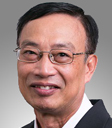 |
Speaker: Dr Huynh The Hung, Principal Investigator: Lab of Molecular Endocrinology, Division of Cellular & Molecular Research, National Cancer Centre Singapore |
|
| 11:20 – 11:40 |
Angiogenesis Inhibitors: Arresting the Proliferation of Cancer with Inhibitors |
|
| |
- Restraining cancer growth with Vascular Endothelial Growth Factor (VEGF) Inhibitor (Case Study)
- Restraining cancer growth with Epidermal Growth Factor Receptor (EGFR) Inhibitor (Case Study)
|
|
|
|
|
| 11:40 – 12:00 |
Exploring Intracellular Antibodies as A Novel Approach to Directly Trigger Bak-mediated Apoptosis |
|
|
- An antibody can specifically bind the pro-apoptotic effector Bak at mitochondria to trigger intrinsic apoptosis
- Antibody is not sequestered by pro-survival Bcl-2 proteins so may bypass certain forms of resistance
- Antibody derivatives are being engineered for targeting and delivery into cancer cells
|
|
 |
Speaker: Dr Ruth Kluck, Lab Head: Molecular Genetics of Cancer Division, Walter + Eliza Hall Institute of Medical Research (WEHI)
Dr Kluck is a cell biologist and laboratory head at The Walter and Eliza Hall Institute. She has studied apoptotic cell death since her PhD at the Queensland Institute for Medical Research. As a postdoc at the La Jolla Institute for Allergy and Immunology (1995-2002), she made the seminal discovery that Bcl-2 inhibits apoptosis by blocking mitochondrial release of cytochrome c. In 2002, she moved to the Walter and Eliza Hall Institute where she has focused on the regulation and function of the pore-forming proteins Bak and Bax. She discovered that to initiate apoptosis, Bak and Bax first form novel symmetric dimers via the BH3 domain binding to the hydrophobic groove of another Bak or Bax molecule. These dimers then generate apoptotic pores by forming disordered clusters in the mitochondrial membrane. Her group recently discovered that a specific antibody to Bak could trigger its activation and pore formation, and is exploring means of specifically directing the antibody into cancer cells.
|
 |
| 12:00 – 13:00 |
Lunch & Networking |
|
| 13:00 – 13:30 |
Hormone Therapies: Reducing Recurrence and Increasing Survival in Prostate and Breast Cancer |
|
|
- A look at synthetic and nature forms of hormone treatment
- Revising the study on the effects of adding testosterone pellets into women through hormone replacement therapy
- Determining the best treatment: hormone therapies, prostatectomy, mastectomy
|
|
|
|
|
| 13:30 – 14:00 |
Tumor Vaccinology: Reinforcing the Body with Highly Potent Vaccines |
|
|
- Discover the latest development in tumor vaccines through a deep review on peptide molecules
- Explore the usage of vaccine in neoadjuvant and adjuvant therapy
- How does the combination of computer-aided drug discovery and cutting edge screening technologies aid in the development of tumor vaccinology
|
|
|
|
|
|
CANCER GENOME/ EPIGENETICS |
|
|
As cancer is a genetic disease, the genes we inherit affect our chances of developing cancer. The study of cancer genomes has proven to be an in-demand aspect in cancer management, capable of identifying abnormalities in genes that drive the development and growth of many types of cancer. This knowledge has proven to be imperative in understanding the biology of cancer which often led to new methods of diagnosing and treating cancer.
The following sessions start off with an understanding on cancer gene mutations and its signaling pathways, complemented by a demonstration on the potential usage of CRISPR and Stem Cell therapy in current and future cancer treatment. These sessions will further empower delegates in exploring the frontier in cancer diagnosis and treatment through revolutionary applications. |
|
| 14:00 – 14:30 |
CRISPR: Killing Cancer Cells with Genome Editing |
|
|
- Discover the potential of gene-editing technology (CRISPR-Cas-9) in the battle against cancer
- Explore the usage of CRISPR as a gene screening tool to identify novel drug targets for cancer therapy
- Discuss the associated risk of using CRISPR in decoding genome and developing cancer resistant human genome
|
|
|
Speaker: Dr Tan Meng How, Senior Research Scientist of Stem Cell & Regenerative Biology; Assistant Professor: School of Chemical and Biomedical Engineering, College of Engineering, Genome Institute of Singapore (GIS); Nanyang Technological University, Singapore |
|
| 14:30 – 15:00 |
Stem Cell Therapy: The Revolutionary & Regenerative Treatment for Cancer |
|
|
- Case Study: A Tissue Engineered Humanized Bone to Study Cancer Metastasis In Vivo
- We could develop a morphologically and functionally intact human bone organ which contained human extracellular matrix components. The bone organ was further humanized through the injection of human cord blood derived haematopoietic stem cells (HSC) which populated in the mouse BM and hTE-BM niche and stimulated human haematopoiesis within the murine host in a time- and dose-dependent manner.
- Of interest, metastatic cancer cells injection resulted in the formation of a primary tumor and spontaneous metastasis to the hTE-BM.
- Less frequent metastasis and lower tumor burden were observed in mice with a humanized immune system, suggesting immune-mediated response against the cancer cells.
- Potential development of new therapeutics against bone metastasis
|
|
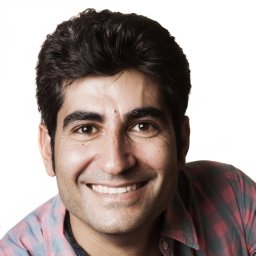 |
Speaker: Dr Abbas Shafiee, Postdoctoral Research Fellow, Institute of Health and Biomedical Innovation, Queensland University of Technology
Dr. Abbas Shafiee is a PhD specialized in stem cell biology, and tissue engineering. Dr. Shafiee is a post-doctoral researcher at the Queensland University of Technology (QUT, Brisbane, Australia) in the Centre for Regenerative Medicine led by Professor Dietmar W. Hutmacher.
Dr. Shafiee completed his PhD at The University of Queensland Centre for Clinical Research (UQCCR). His PhD study focused on the in vivo definition of endothelial progenitor cells (EPC) from the human term placenta tissues. As a result of this project, he established a new in vivo hierarchy amongst EPCs. Then he moved to QUT to undertake his postdoctoral research by Professor Hutmacher, where they have developed a new cutting edge research area, namely “humanized animal models” via the translation of tissue engineering technologies into cancer research.
|
 |
| 15:00 – 15:30 |
Afternoon Refreshment & Networking |
|
|
CANCER: INTEGRATIV, PSYCHOLOGICAL & SOCIAL ASPECT |
|
|
Due to the increase in cancer survival rate, cancer has become a chronic disease. Therefore, therapeutic approaches are treating cancer like that of diabetes, by prolonging life as certain cancers are near to incurable. Cancer survivors often face significant challenges that extend far beyond the immediate physical impact of the disease and treatment with statistics showing one in four people who complete primary treatment for cancer continue to experience long-term ill health and disability.
The following sessions equip delegates with skills to provide palliative care and other means of supportive care to help ease discomfort of cancer patients. In addition, the session also explore a recently developed new model of cancer care named oncofertility, specifically addressing the reproductive future of cancer survivors. |
|
| 15:30 – 16:00 |
Integrative Oncology
|
|
|
- The use of complementary therapies in combination with conventional medicine
- How to support a cancer patient and further stimulate their immune system
|
|
|
|
|
| 16:00 – 16:30 |
Endocrine Disruptors and Environmental Toxicants in Cancer |
|
|
- The role of estrogens and toxicants in cancer proliferation
- Unpacking specific markers in Functional pathology and genetics revealing the impact of toxicants, endocrine disruptors and hormone metabolism in patients diagnosed with cancer
- How to read, interpret and treat a patient
- Nutrient therapies tailored to specific lab results and advances in the latest nutrient based targeted therapies
- Avenues of further investigation in cancer and how it can affect other organ systems
|
|
 |
Speaker: Vanita Dahlia, Integrative Medicine Practitioner, Functional Pathology Clinical Consultant & Chief Educator, Nutripath
Vanita Dahia is an integrative medicine clinical consultant pharmacist, naturopath and clinical nutritionist.
Functional pathology clinical consultant and Health Services manager providing in-depth technical and clinical consultancy and expert technical training incorporating assessment, interpretation and prescriptive guidelines to doctors and allied health practitioners internationally. Vanita is a medical authority and extraordinary mentor to her peers and patients alike. As a presenter to her peers and community at large, she is engaging, articulate, humorous, and insightful, making learning a dynamic experience for professional and personal growth.
Board certified fellow in Anti-ageing and regenerative medicine providing clinical training programs and educational initiatives to Dr’s and allied health practitioners. She has more than 30 years expertise in compounding pharmacy, functional Pathology, herbal, Ayurveda and integrative medicine. Vanita received her training in anti-aging medicine through association and membership with the American Academy of Anti-Aging Medicine (A4M and A5M) and Professional compounding Centres of America and Australia (PCCA).
Vanita is an international speaker and a published author of Alchemy of the Mind, co-author of The Book of Inspiration for Women by Women and Healthy Body.
|
 |
| 16:30 |
Closing Remarks by Congress Chairperson |
|






